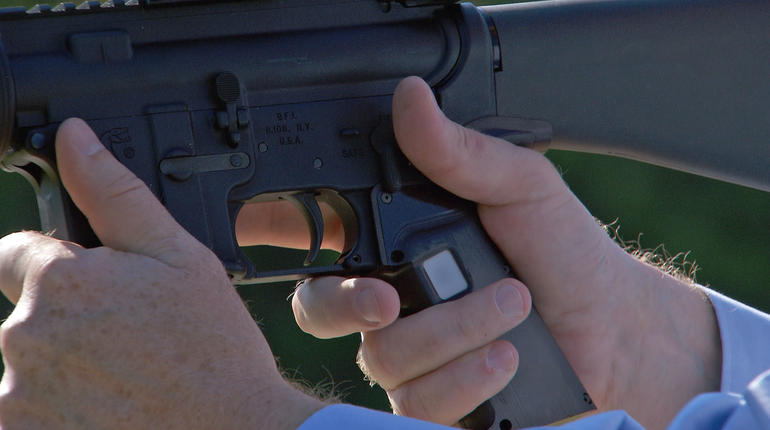Are “Smart Guns” a Smart Move?
November 18, 2015
As the number of everyday commodities untouched by the latest technology diminishes, guns could be next. Whether the rates of gun-related accidents and intentional destructive acts have risen or we are simply more aware of their occurrence, some have been inspired to develop new safety mechanisms in order to lessen or eliminate these tragedies. One development has been the implementation of fingerprint scanners which only allow the programmed owner of the gun to fire it. Another is a chip, which can be implanted into a ring or watch, which only allows the gun to be fired when it is in close proximity to the weapon. Though the positive effects of these advancements seem obvious, there has been some controversy due to the NRA and the political nature of the topic of gun control in America.
The developers of these “smart-guns” saw a problem that they believed could easily be solved by bringing guns into the relatively new age of technology. With so many tragedies involving children accidentally firing guns, they set out to find a way to lessen these events and possibly render them non-existent. This technology has also been developed to lessen illegal gun trade and the regularity of guns being stolen. Another situation where this technology could be beneficial is in physical struggles that occur between police officers and violent citizens under arrest. Sometimes, these offenders can end up killing officers by using their weapons against them. Though this technology would not have prevented mass-shootings like the one in Aurora because the owners of the guns committed the act, it could cut back on accidental deaths and the use of a gun without its owner’s knowledge. After successfully developing guns with the fingerprint and chip-activated mechanisms, developers of this cutting edge technology were hopeful that its success on the market would reflect its pending positive effect on creating a safer society; however, they have faced much opposition.
Those that are against these advancements claim that the development of “smart-guns” is the first step to gun control which the NRA is so notoriously opposed to. Due to current laws in New Jersey, they are correct in this case. In New Jersey, a law nicknamed “the Mandate” states that whenever the first smart gun is sold anywhere in the country, it will be the only type of gun eligible for legal sale in the state. Despite the effort to spark the development of these guns, the law has had the complete opposite effect. Hesitant to create more controversy, the creator of this law is currently trying to have it repealed. Another argument against the sale of smart-guns is their ability to function in the elements. In the case of fingerprinting, it is contended that dirt, or even sweat created by a highly stressful situation could interfere with the gun’s ability to fire. Many of the objections to the development of these technologies seem frivolous and almost obsolete. Some even argue that the NRA’s opposition to the sale of these guns is hypocritical because of their blanketed support of the right to own and sell firearms. The option alone to own a “smart-gun” has the potential to reduce the rate of gun-related deaths caused by the accidental firing of a gun and looks as though it will be a popular option for younger generations of gun owners who are more likely to readily employ technology in order to eliminate a gun falling into the wrong hands.
For more information on this topic, check out these clips from 60 Minutes which expand on both sides of the issue.

